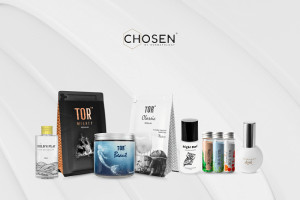8 Most Effective Skincare Ingredients for Oily Skin

It can be tough to find good skincare products, especially if you have oily skin. The market is saturated with products that claim to clear acne overnight, and it’s difficult to know which ones will work for you and which ones could aggravate the situation. Excessive sebum production causes oily skin, which can lead to closed pores, trapped germs and dust, and severe acne. When shopping for skincare, look for safe and active compounds (such as benzoyl peroxide and rose oil) that can kill bacteria, boost cell turnover, and keep your skin healthy.
When choosing products for oily skin, make reading labels a habit. You wouldn’t want to invest in something that works against your skin rather than for it.
To assist you in making better skincare decisions for your oily skin, we’ve compiled a list of compounds that are proven to be immensely beneficial for the treatment of oily skin. Keep reading and you may just find your holy grail!
-
Benzoyl Peroxide
Let’s begin with a good cleanser, shall we?
Benzoyl peroxide is an exfoliant that eliminates excess sebum from the skin and helps to prevent acne from forming. Dermatologists frequently recommend a stronger version of benzoyl peroxide wash to those suffering from severe acne. It should, however, be used with caution because it might cause skin irritation, dryness, and redness. Inflammatory acne, which is characterised by red pimples that can be fairly painful, responds well to benzoyl peroxide. It also works on acne that isn’t inflamed, such as whiteheads and blackheads.
Because Benzoyl Peroxide is such a strong chemical, it should be used with caution by individuals with sensitive skin. It’s also a good idea to perform a patch test first. Furthermore, if you’re going to use Benzoyl Peroxide as a facial cleanser, it’s best to start with the smallest concentrations and work your way up.
-
Retinol
Retinol, a type of vitamin A, is a powerful skincare ingredient that helps with oil control, acne relief, and more. It is one of the few chemicals that, when used regularly, can reverse the effects of ageing. Retinol accelerates the turnover of skin cells, resulting in brighter, cleaner, and healthier skin. It has been demonstrated to help retain skin suppleness by increasing collagen formation. Retinol is best applied at night and should be supplemented with broad-spectrum sunscreen throughout the day. Retinol can also lighten and exfoliate the skin with regular use.
-
Salicylic Acid
Salicylic acid is a highly powerful chemical that can be your saviour if you have regular breakouts due to oily skin. It’s an anti-inflammatory that absorbs excess oil, removes dead skin cells, and fights breakouts. Salicylic acid is a type of Beta Hydroxy Acid (BHA) that has pore-clearing and exfoliating properties, making it perfect for oily or acne-prone skin. Its anti-inflammatory characteristics also make it a good choice for cystic acne sufferers. Salicylic Acid clears clogged pores and kills bacteria, making it ideal for oily skin. Since it works by removing the dead outer layer of skin, it is a highly powerful component for breaking down blackheads and whiteheads.
-
Glycolic Acid
Glycolic acid is a type of alpha hydroxy acid (AHA) that can be found in a wide range of cleansers, moisturisers, and toners. Glycolic acid, derived from sugarcane, is one of the most effective skincare ingredients. It has excellent penetrating action and is ideal for oily skin.
Glycolic acid inhibits blockage of pores, which causes skin outbreaks. It’s also a great exfoliant, removing dead skin cells from the surface of the skin and leaving it smooth and radiant.
-
Niacinamide
Niacinamide is a type of vitamin B3 that improves skin suppleness, reduces pores, and controls oil production. Oily and acne-prone skin benefits immensely from niacinamide. It minimises fine wrinkles and blemishes by regulating sebum production. Topical niacinamide is a safe and effective treatment for all skin types. People with hypersensitive skin, on the other hand, may have a negative reaction. A patch test should always be performed before using any skincare ingredient, such as niacinamide, AHAs, or BHAs.
-
Hyaluronic Acid
Hyaluronic acid is a key component in moisturisers and serums that helps your skin retain moisture. People with oily skin frequently overlook the need for moisturising. Lack of skin hydration is a common cause of oily skin, and hyaluronic acid, when used in combination with a moisturiser, will hydrate your parched skin. Hyaluronic acid is a humectant that aids in the retention of moisture in the skin. You’re more likely to aggravate your skin concerns if you use products that are extremely drying. When treating oily skin, be careful not to over-dry it since this might cause your glands to respond by creating even more sebum. Hyaluronic acid is a natural way to increase the moisture in your skin.
-
Grapeseed Oil
Applying oil to your oily skin may sound absurd. However, some oils, such as grapeseed oil, can aid in the management of oily skin. Grapeseed oil is high in beneficial fatty acids that assist in minimising acne-related inflammation. Look for grapeseed oil in the ingredient lists of the items you’re considering buying if you want to unclog your pores and keep your skin moisturised at all times. You may also use cold-pressed grapeseed oil in your skincare routine. For oily skin, it is one of the most effective natural skincare products.
-
Rose Oil
Just like grapeseed oil, rose oil is another product that holds a lot of promise for oily skin beauties. Rose oil is made from rose petals, and as we all know, roses have long been associated with beauty, youthfulness, and vitality. Rose oil can fight against the free radical damage that your skin suffers from thanks to its high antioxidant content. It’s also great for oily, acne-prone skin because it’s a mild oil that absorbs rapidly without leaving skin looking greasy. The retinoids in rose oil promote cell turnover, which helps to cure acne, blemishes, wrinkles, fine lines, and other skin conditions.
Many times, other ingredients such as CBD are also added to rose oil, which makes it even more effective for the treatment of acne. Both rose oil and CBD boast anti-inflammatory properties, which makes this combination ideal for managing oily skin and preventing acne. Moreover, both these ingredients are non-comedogenic, meaning that they do not clog pores. Clogged pores can dramatically aggravate acne, and people with oily skin should stay away from such ingredients.
Conclusion
Taking care of oily skin is difficult due to the numerous difficulties that must be addressed. There are, however, things you may do to help lessen the problem. One of these things is to keep an eye on the components in the cosmetics you use on your skin. You can help balance your skin by knowing which products to use and which substances to avoid. However, finding the correct ones that won’t irritate or dry it out is difficult. Non-comedogenic products have been properly tested and shown not to clog pores, so search for the term “non-comedogenic” on your skincare labels. This is crucial for oily skincare because maintaining your pores clear is the most important aspect of keeping your skin clear. If you combine your skincare practice with a healthy diet and lifestyle, you’ll notice your skin improving day by day.







